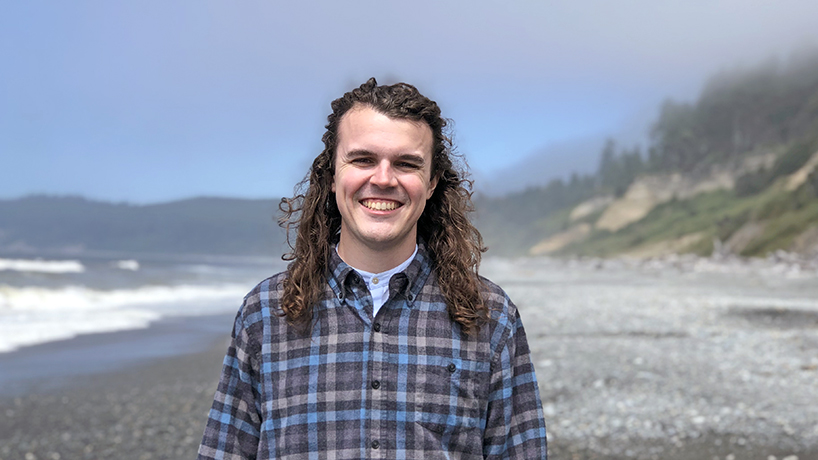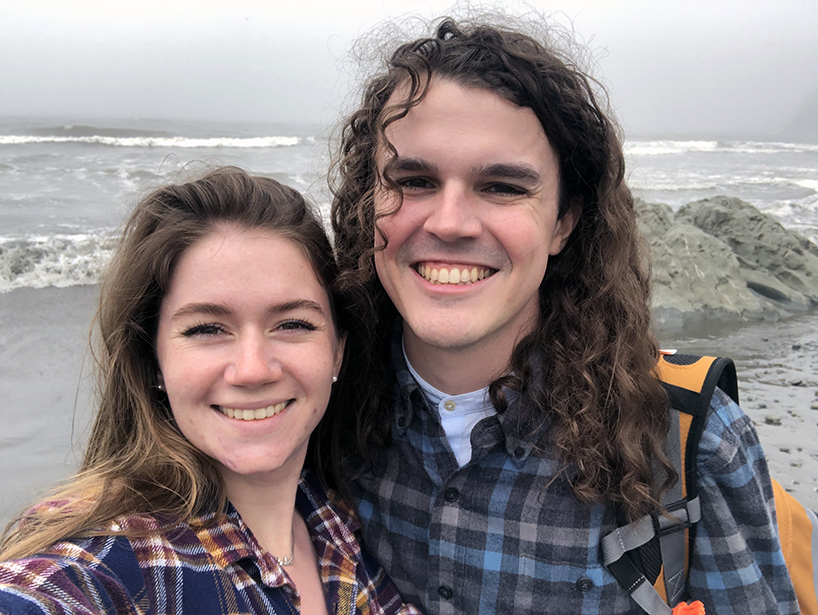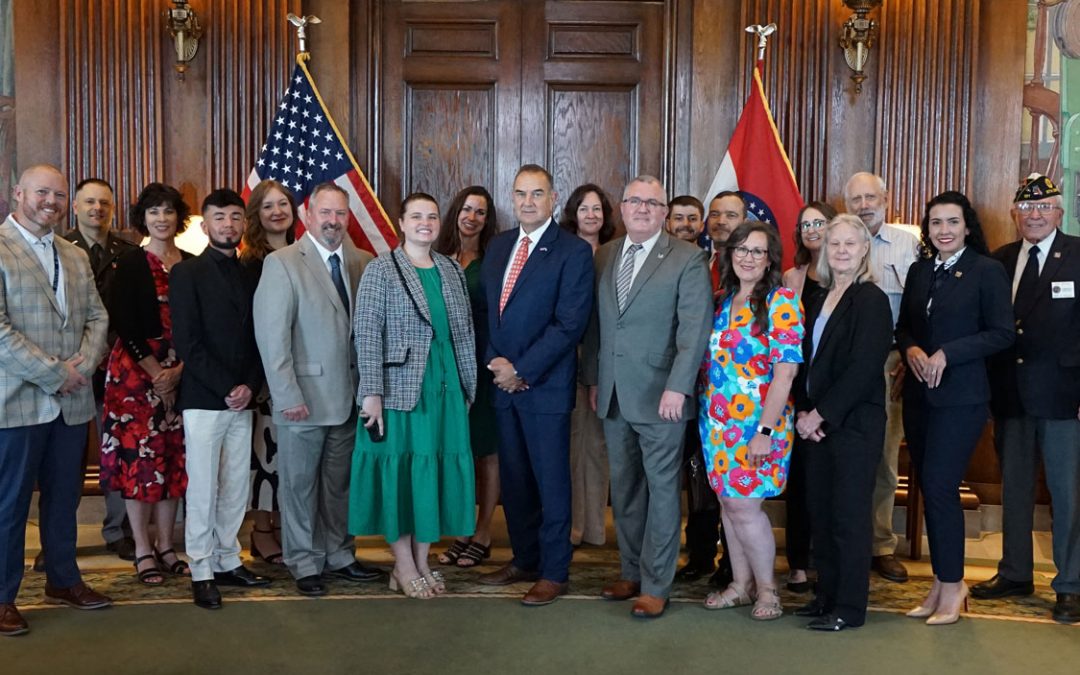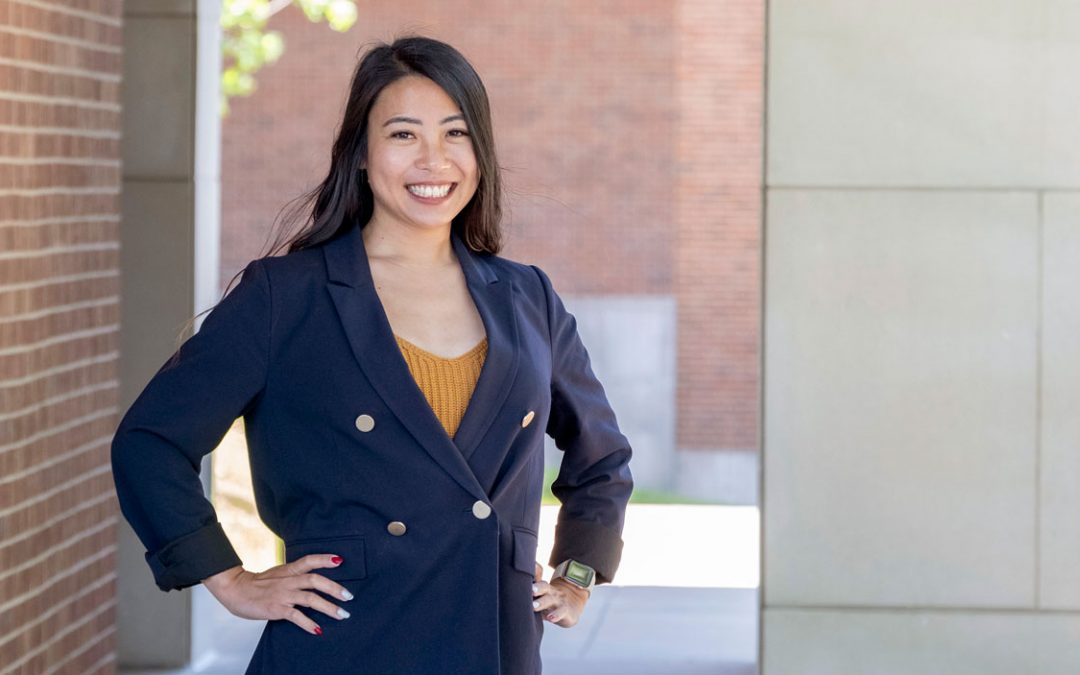
College of Optometry fourth year student Patrick Stifter found optometry after helping his now-wife, Yelyzaveta, navigate dental health problems while the two were in college. He now serves as treasurer on the Executive Council of the American Optometry Student Association. (Photos courtesy of Patrick Stifter)
Patrick Stifter found optometry thanks to an oral surgeon.
The Kansas City native was attending the University of Alabama and bouncing around from major to major, but nothing he studied seriously spoke to him. Nothing except for his then-girlfriend, now-wife, Yelyzaveta, who goes by Liza.
Growing up in Ukraine, she hadn’t had immediate access to high quality health care and, while in school, she experienced dental health problems that meant the two spent significant time navigating the medical landscape with only the catastrophic health plan commonly available to international and immigrant students in the U.S.
Stifter recalls talking with Liza’s oral surgeon, who suggested looking into dentistry.
“I really appreciated how helpful he was when we were struggling a lot with getting her to all these appointments, and it so expensive,” Stifter said. “I didn’t really like teeth, but he provided comforting, quality health care. I did a lot of reassessing and realized that health care was something that I was very much interested in.”
Stifter began shadowing an optometrist and quickly fell in love with the profession and its strong doctor-patient bonds, which ultimately led him the University of Missouri–St. Louis. He’s now a fourth year student in the College of Optometry and serving as treasurer on the Executive Council of the American Optometric Student Association.
He first became involved with the AOSA three years ago as a way to stay connected with some of his previous interests – law and politics.
Liza’s experiences navigating some dental health problems with only the catastrophic health plan commonly available to international and immigrant students helped inspire Stifter’s focus on health care equity.
“Within the AOSA, we advocate for students first and foremost,” Stifter said. “But we also advocate for optometry as a profession. In some states, optometrists can do surgeries, but in other states, like Massachusetts, they weren’t even allowed to prescribe glaucoma treatments until, I think, about a month or two ago. We strive to make all states excellent places to practice.”
Every optometry school in the U.S. has two representatives that serve on the AOSA national board. UMSL optometry students elected Stifter to represent them for a two-year term on the AOSA board of trustees to that role.
The time commitment of those roles varied, and he’d spend up to twenty hours per week volunteering for the organization, focused on local events and causes while serving as a local link to the national organization.
“It’s about keeping students engaged with the AOSA and raising awareness,” he said. “Those events can be really fun. We also do more serious events where we talk about future legislation that the AOSA and the parent organization, AOA, are working on, or that we’ve accomplished because I think it’s important as an optometrist to be engaged in the legislative side of things.”
After he served for two years, optometry students from across the country voted Stifter in as treasurer, one of four spots on the AOSA executive council. Tremendously honored and thrilled, he immediately jumped into thinking about what impact he could have.
Though in one sense AOSA is a small student organization, in another, it’s a giant. Thousands of students belong and pay dues, and they represent almost the entirety of future practicing optometrists, so industry’s large companies are interested in familiarizing the members with their products.
“A lot of what I’m working on is figuring out how we create a symbiotic relationship with these massive industrial companies that can benefit students around the country,” Stifter said. “We’re hoping to sponsor scholarships and travel grants. That’s what I’m really excited about.”
He’s hoping that one thing the partnership might do is support more students to attend the AOA and AOSA’s annual conference, Optometry’s Meeting, the profession’s annual conference, which seems like a win-win for students and industry alike.
Then there’s the scholarships. The executive council and the AOSA have recently launched a scholarship to support underrepresented minority students as they apply to optometry school. The Opportunities in Optometry Grant should cover everything including the cost of taking the Optometry Admission Test as well as expenses for interviewing that might include everything from business attire to travel and lodging.
Those efforts are tied together thematically for Stifter.
“Not everybody gets the same access to quality health care,” he said. “It’s hard to advocate for the patient, to provide them with the best quality care, if you don’t know where they came from and then what kind of environment or what kind of socioeconomic factors have impacted them throughout their lives.
“Minority groups are underrepresented in optometry. If optometry is this single homogenous group, we aren’t getting exposed and we aren’t taking into account everything that we should when see a patient. I think everybody wins if every group is represented in an equitable way because we can all learn from each other. We all deserve to have the best access to health care and, in doing so, can create a diverse profession.”
Though Stifter expects to graduate in May 2022, he plans to stay involved with advocacy as part of the AOA, noting that there’s many roles in the parent organization open for him to continue doing similar work.
That’s important to him because striving for equity in optometry, and in health care more broadly, calls back to college, when Stifter and Liza worked hard to get her the quality care she needed.
“I know a little bit more what it’s like,” he said. “It was a struggle. It’s so hard to find good health care if you don’t have the best insurance. Having to just find a way to get basic health care needs met – yes, that absolutely has impacted how I have proceeded.”















